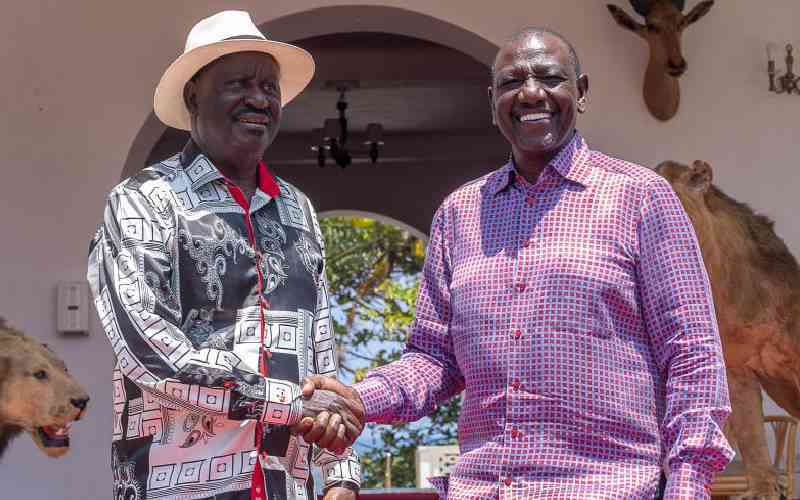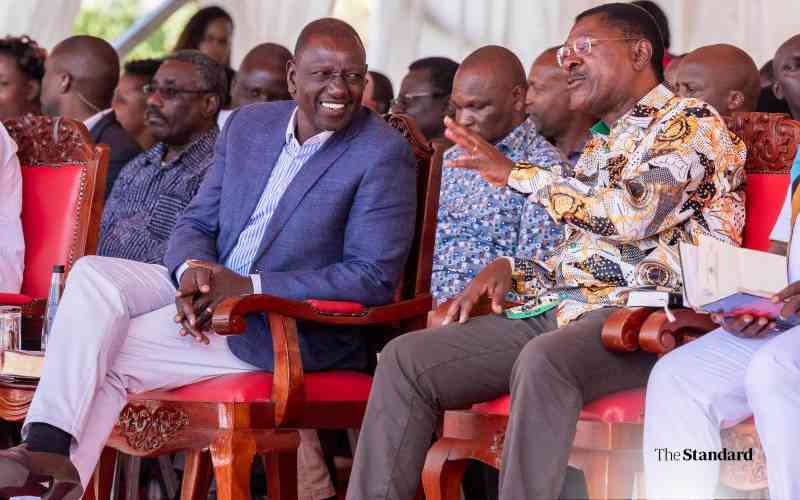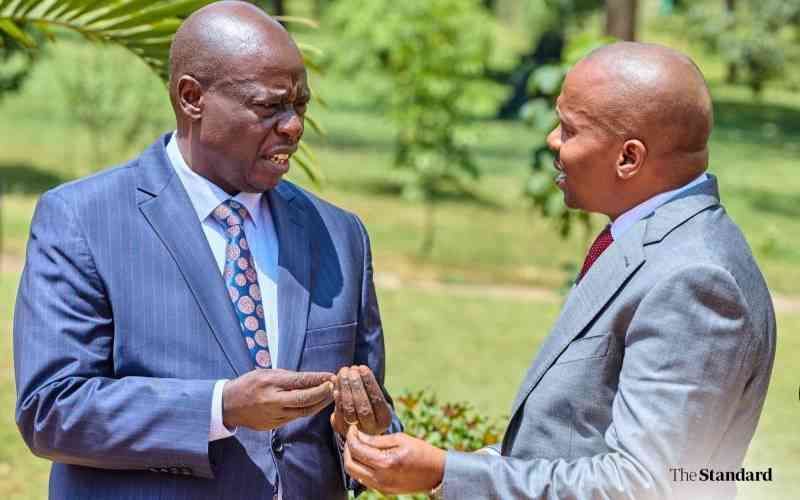By WAHOME THUKU
For two years now, Uhuru Kenyatta, William Ruto and Joshua Sang have been on a legal showdown with the Office of the Prosecution at the ICC.
It has been a fight for a win at any level for the prosecution and the defence, since the three stepped in the ICC in September 2011.
The judges in all chambers have played fair arbiters making decisions that have hurt or boosted the two sides in equal measure.
However, besides losing few applications on purely housekeeping matters, the suspects have also lost major requests with serious implications on their cases and their private and official lives. On March 8, 2011 the Pre-Trial Chamber II, granted an application by the prosecution for Ruto, Sang and former Industrialisation Minister Henry Kosgey to appear before it for the confirmation of charges proceedings. Judge Hans Peter Kaul dissented saying the alleged crimes did not meet the threshold of the Rome Statute.
On May 30, Pre-Trial Chamber II dismissed a move by the government to challenge the admissibility of the cases at the ICC. An appeal on the decision by the government was also dismissed by the Appeals Chamber.
On August 12, 2011 the Pre-Trial Chamber rejected an application by the suspects in the Ruto case to have the confirmation hearing postponed by six weeks and ordered that it should proceed as scheduled on September 1. An application for permission to appeal against the decision was also dismissed by the Chamber.
Full trial
On August 29, 2011 the Pre-Trial Chamber II dismissed an application by Ruto to be allowed to waive his right to be present during the confirmation hearing.
The court ruled that if he decided to waive the right he had to submit a new written request for that.
On January 23, 2012 the Pre-Trial Chamber II confirmed all the charges against Ruto and Sang, thereby sending their case to full trial. One judge, Hans Peter Kaul, dissented, ruling that the cases did not meet the threshold of the ICC. An appeal against the confirmation was also dismissed by the Appeals Chamber.
The Chamber also dismissed Ruto’s application to have any trial proceedings suspended pending the determination of his appeal against the confirmation of the charges.
On August 20, the Appeals Chamber allowed an application by the prosecution to suspend an order of the Trial Chamber that granted Ruto permission to be away during parts of the trial sessions.
That meant that as long as the order had been suspended, Ruto would be required to attend all court sessions, as the Appeals Chamber deliberated on the request.
On August 29, Ruto lost yet another key application to vary the court sitting schedule to allow him enough time to be present both in The Hague and also in Kenya to conduct his official duties.
Stay informed. Subscribe to our newsletter
The Trial Chamber ruled that it would sit on daily basis from September 10 to October 4 and again from October 14 to November 1.
Uhuru case
In March 2010, the Pre-Trial Chamber II granted an application by the prosecution to summon Uhuru and two other co-accused. However, one judge Peter Kaul dissented saying the charges did not meet the threshold of the Rome Statute to be heard by the ICC.
On June 7, 2011 the Appeals Chamber dismissed an appeal by the Kenyan Government challenging the decision in which the Pre Trial Chamber had dismissed their contention against the admissibility of the cases in the ICC.
On August 10, 2011 the Pre-Trial Chamber asked Uhuru, Muthaura and Ali’s defence to reduce the number of witnesses they intended to call in the confirmation proceedings to two, each.
On September 20, 2011 the Pre-Trial Chamber rejected an application by the government to be present in court during the confirmation of charges hearing.
On May 24, 2012 the Appeals Chamber dismissed an appeal by Uhuru to have the confirmation of the charges by the Pre-Trial Chamber overturned.
List of witnesses
The Chamber also dismissed his appeal to make oral submissions on the jurisdiction of the Pre-Trial chamber to handle the charges facing him.
On June 20, the Trial Chamber rejected an application by Muthaura, supported by Uhuru, to prohibit the prosecution from contacting defence witnesses until such a time when the Chamber would make a decision on how either party would contact witnesses of the other.
The Chamber also rejected a request by the two to order the prosecution to disclose a log of contacts with their witnesses.
On November 7, 2012 the Chamber rejected Uhuru’s request to have the trial moved to Kenya or Arusha, Tanzania. The Chamber however allowed him to make the same application to the ICC Presidency in future if he so wished.
On July 3, the Trial Chamber V dismissed a request by President Kenyatta to be provided with a chronological list of witness materials to be relied upon at the trial.
 The Standard Group Plc is a
multi-media organization with investments in media platforms spanning newspaper
print operations, television, radio broadcasting, digital and online services. The
Standard Group is recognized as a leading multi-media house in Kenya with a key
influence in matters of national and international interest.
The Standard Group Plc is a
multi-media organization with investments in media platforms spanning newspaper
print operations, television, radio broadcasting, digital and online services. The
Standard Group is recognized as a leading multi-media house in Kenya with a key
influence in matters of national and international interest.
 The Standard Group Plc is a
multi-media organization with investments in media platforms spanning newspaper
print operations, television, radio broadcasting, digital and online services. The
Standard Group is recognized as a leading multi-media house in Kenya with a key
influence in matters of national and international interest.
The Standard Group Plc is a
multi-media organization with investments in media platforms spanning newspaper
print operations, television, radio broadcasting, digital and online services. The
Standard Group is recognized as a leading multi-media house in Kenya with a key
influence in matters of national and international interest.





